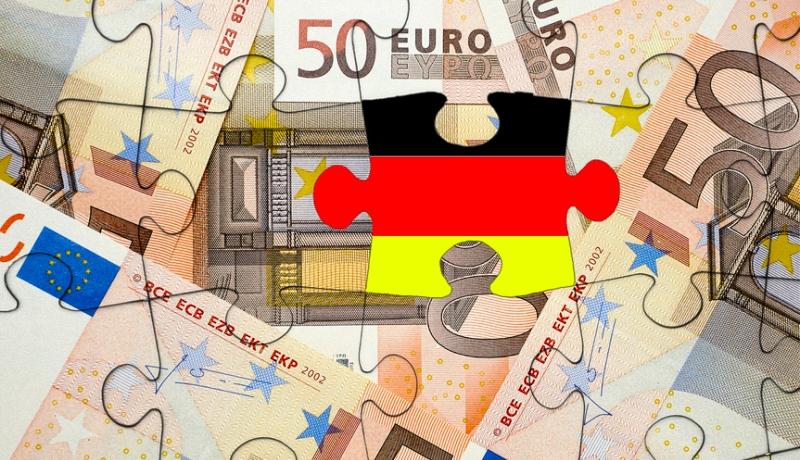Technical tests of guaranteed basic income in Germany

The in-depth study by Pierluigi Mennitti
On the day when Angela Merkel's government launches an increase of 7 euros per month in the Hartz IV assistance subsidy, attracting criticism from the opposition and social associations that contest its smallness, one of the leading economic research institutes, Diw ( Deutsche Institut für Wirtschaftsforschung) , Berlin launches the recruitment of volunteers for a socio-economic experiment: living on a basic income of 1,200 euros per month for three years.
THE PREVIOUS FINNISH
It is the German way into the almost unknown world of guaranteed basic income, considered by some to be the new frontier in a society dominated by the end of (human) work. German way because elsewhere similar experiments have already been tried, even in Europe itself. Many will remember the Finnish one, dated not too long ago: held for 2 years, it ended in 2019 with a result that the promoters themselves had defined disappointing. At least as far as the employment part was concerned: as a mechanism to attempt the reintegration of adults into the world of work, the Finnish experiment had failed, although the researchers also found advantages on other aspects, such as health and mood. of earners.
THE RECRUITMENT OF 1,500 VOLUNTEERS STARTED
Now the Diw experts are trying, supported by the Mein Grundeinkommen (My Income) association, with a study that is longer than the Finnish one by one year and the aim of providing further empirical material to the debate on the topic that in recent years has been it is made tighter.
Recruitment has started. The institute is looking for 1,500 volunteers resident in Germany , from whom it will draw, as in a lottery, the 120 “lucky ones” who will be awarded a monthly allowance of 1,200 without any conditions for three years. Volunteers excluded from the draw will not return home, but will be part of the comparison group. The experiment will start in the spring of next year and will end in that of 2024. The funding comes from 140,000 private donors.
AN UNKNOWN LAND
The research plan includes regular contact with participants to understand how money received without work commitments is changing daily life. Changes in working life, financial management, family relationships, social contacts, leisure and psychological influences. “It is a great opportunity”, says Jürgen Schupp, one of the Diw managers, “since similar experiments carried out in other parts of the world are in fact unusable in the debate in Germany. With this research we are truly entering a hitherto unknown terrain ”. The same optimism on the part of Michael Bohmeyer, founder of the Mein Grundeinkommen association: "We want to understand the effects of a secure minimum income on the behavior and attitudes of beneficiaries, and see if it can help people to face the challenges with more confidence and dignity. contemporaries of our society ".
A CARSIC DEBATE
In Germany, the universal basic income debate is like a karst river, rising to the surface in waves and then disappearing for long periods. It hadn't been talked about for a while, at least since the Finnish experiment had sanctioned its failure in terms of relocation to the world of work. Those who would be willing to consider this measure only from the point of view of incentives to search for a job believe that the mechanisms of Hartz IV, the German assistance system, are more effective. On the other hand, there are those who consider them too rigid and complain of humiliating effects on the personality of those who receive them. Then there is a large section of critics who are concerned about the cost of basic income for Germany's 83 million inhabitants.
"The current discussion is rarely based on well-founded scientific acquisitions", continues Schupp, presenting the research project on the Diw website, "and we want to offer the possibility of translating the theoretical debate on unconditional basic income that accompanies us into social reality. for years".
NOT JUST UNEMPLOYMENT
The conditions for the participants are not too strict. It is not necessary to prove that you are in a state of economic need and it is possible, if desired, to earn additional income through work. The amount allocated is above what in Germany is considered the poverty line, in which there are problems with livelihood and difficulties in social relations. It is not aimed at studying the mechanisms to combat unemployment and reintegration into the world of work, but extends to evaluate other components. Since human decision-making processes are highly complex and the focus is also on changes in participants' decisions and cognitive abilities, the study is also supported by scientists from the Max Planck Institute for Collective Property Research and the University of Cologne. for psychological and behavioral research.
This is a machine translation from Italian language of a post published on Start Magazine at the URL https://www.startmag.it/economia/prove-tecniche-di-reddito-di-base-garantito-in-germania/ on Thu, 20 Aug 2020 08:42:37 +0000.
